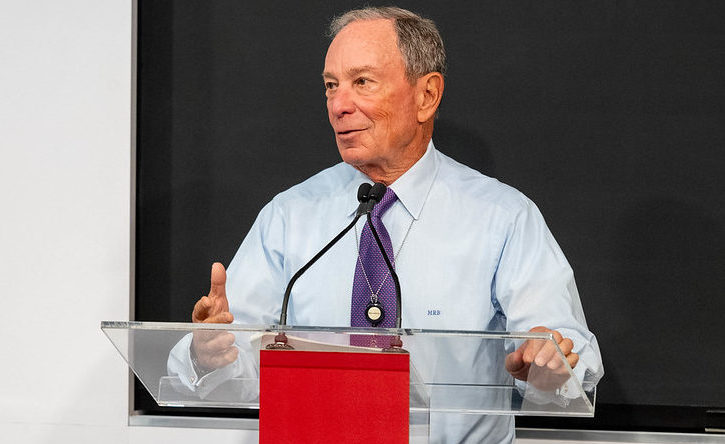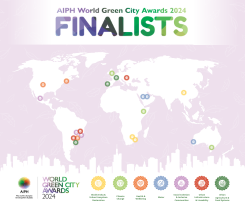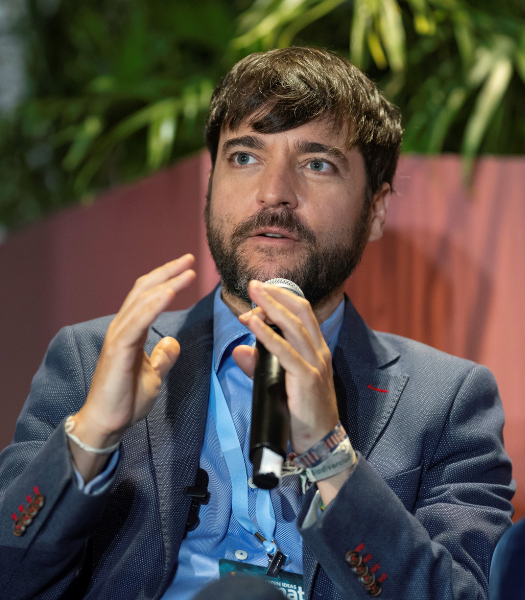
Bloomberg funds 15 most promising city innovation projects
18 January 2022
by Christopher Carey
Phoenix Arizona’s mobile career unit initiative – which provides job seekers with access to resources, training, and opportunities – is one of the 15 winning entries in Bloomberg Philanthropies’ 2021-2022 Global Mayors Challenge.
Other winners include Kigali’s smart waste system, Wellington’s digital twin, a mutual aid programme in Istanbul, and a partnership in Paterson to address the opioid crisis.
The competition – in its fifth edition – supports cities’ most promising innovation ideas, focusing on four key areas: economic recovery and inclusive growth; health and wellbeing; climate and environment; and gender and equality.
Each winning city will be awarded US$1 million in addition to technical support and coaching over three years to bring their ideas to life.
“Global talent shortages are at a 15-year high, with one in three employers citing difficulty filling jobs,” said Phoenix Mayor Kate Gallego.
“So in Phoenix, we got creative and focused on coming up with new ways for employers and job seekers to connect.
“Pilots of the Mobile Career Unit have successfully demonstrated it provides employers with skilled talent and results in ‘on-the-spot’ hires.”
The units, which offer training, interview opportunities (virtual and in-person), translation, career counselling, and supplemental supportive services have been created to reduce unemployment while boosting confidence.
“This innovative approach holds great promise for getting the people of Phoenix into good jobs, and I believe it will serve as a model for communities around the world,” Mayor Gallego added.
“Bold, achievable plans”
The 15 winning cities hail from 13 countries on six continents and collectively represent more than 30 million residents.
They were selected from among 50 Champion Cities that spent the past four months working with residents to test and refine their projects.
“As the world works to address the profound public health and economic effects of the ongoing pandemic, cities can implement innovative ideas at a pace that national governments simply can’t match,” said Michael R. Bloomberg, founder of Bloomberg L.P. and Bloomberg Philanthropies, and former Mayor of New York City.
“Our 15 winners offer bold, achievable plans to improve health, reduce unemployment, empower women, and more. Collectively, they have the potential to improve millions of their residents’ lives – and the most successful solutions will inspire cities around the world to embrace them.”
Mayors from 631 cities in 99 countries submitted applications for the 2021-2022 competition – the most applicants to date, and nearly twice the number of cities that applied to the last Bloomberg Philanthropies’ Mayors Challenge in 2018.
The other 14 winning projects were:
- Freetown, Sierra Leone: Creating a new digital marketplace supporting tree maintenance and the urban canopy using digital technologies.
- Kigali, Rwanda: Introducing a smart waste system that improves sanitation and water quality in the city.
- Kumasi, Ghana: Addressing waste management and youth unemployment crises by training young people to install toilets.
- Butuan, Philippines: Strengthening local food production by empowering farmers to make smarter decisions through a new agri-business model.
- Rourkela, India: Providing cold-storage units to women’s co-ops to empower female food vendors, reduce food waste, and increase access to fresh foods.
- Wellington, New Zealand: Creating a virtual twin of the city that helps residents to better understand climate change impacts, promoting resident action.
- Istanbul, Turkey: Fostering city-wide mutual aid through a programme that crowdsources contributions to meet basic needs for those in need.
- Rotterdam, Netherlands: Using digital tokens to create incentives for local businesses to hire vulnerable residents.
- Vilnius, Lithuania: Taking lessons learned during COVID-19 to create more resilient K-12 education models, especially those that tap the “city as a classroom”.
- Bogota, Colombia: Creating “care blocks” that support female caretakers, move more of the care burden to men, and shift more unpaid care work to being paid.
- Amman, Jordan: Mapping available public assets and service infrastructure to improve the city’s emergency response and infrastructure investments.
- Hermosillo, Mexico: Creating eco-friendly employment opportunities that benefit both the environment and underemployed women.
- Paterson, New Jersey: Responding to residents struggling with Opioid Use Disorder by fulfilling requests for lifesaving medication within 90 minutes through a coordinated effort among police, first responders, hospitals, and pharmacies.
- Rochester, Minnesota: Bringing more women of colour into high-paying construction jobs by coordinating with contractors and facilitating training.










